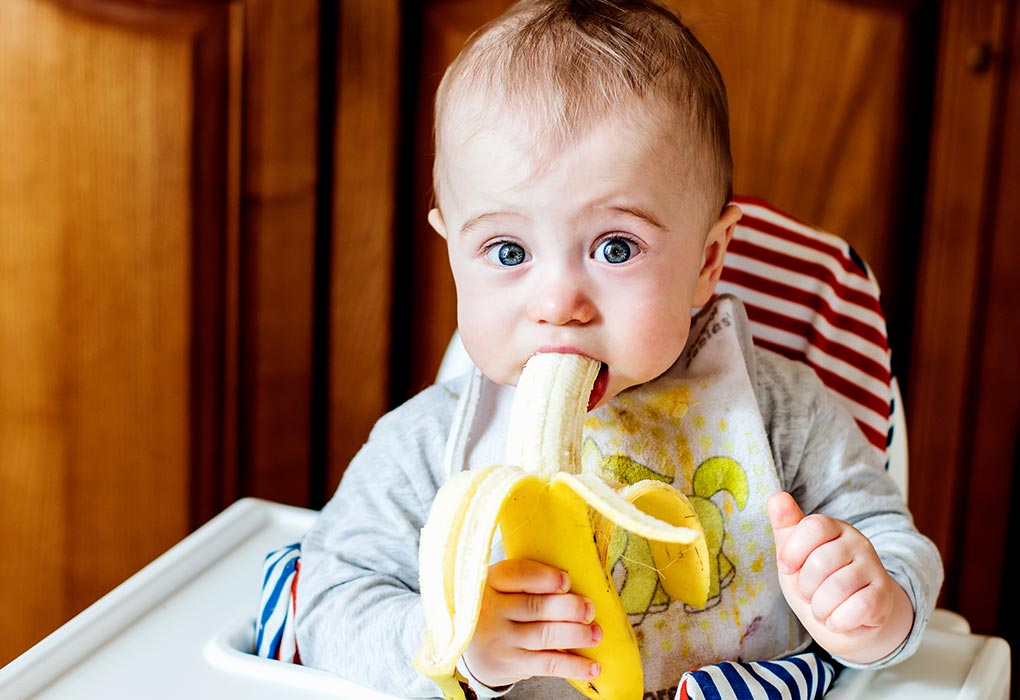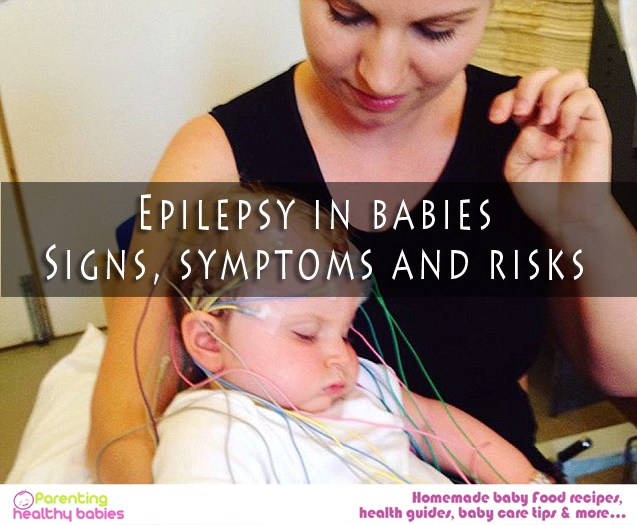The first food that most parents introduce to babies is the fruit banana. Babies love it because of its sweet taste and it is an extremely nutritious fruit packed with vitamins and minerals. However, not all babies can eat bananas as may have an allergic reaction. The symptoms of this allergy include a rash, diarrhea, vomiting, or in severe cases, anaphylaxis. The allergy depends on the child’s immune system and food allergies are quite common among babies.
In this article:
What is it?
Causes of Banana Allergy in Babies
Symptoms of Banana Allergy in Babies
Risk Factors of Banana Allergy in Babies
How to Deal with Banana Allergy in Babies?
Other Foods to Avoid
When to See a Doctor
All You Need to Know about Banana Allergy in Babies
What is it?
A banana allergy is an allergy to certain proteins present in bananas. The baby will have a banana allergy if the immune system is hypersensitive towards a specific protein found in it. If the baby has an allergy to bananas then this means that once consumed, the body will attack the food to protect the digestive system by sending out white blood cells. This can provoke an external allergic reaction in the baby.
Causes of Banana Allergy in Babies
If the baby vomits or has a red rash on the face soon after eating a banana, it may be because of a banana allergy. This might happen due to the following causes –
- Protein intolerance – there is a protein found in bananas which is called ‘chitinase’. The baby’s immune system may be tolerant to this protein and hence become hypersensitive causing an allergic reaction to bananas.
- Vasoactive amines – bananas contain a substance known as vasoactive amines. Vasoactive amines are similar to histamines and occur naturally. If the baby’s metabolic system cannot oxidise enzymes, then vasoactive amines may lead to an allergy to bananas in babies.
Symptoms of Banana Allergy in Babies
During feeding the baby with a banana for the first time, watch out for the symptoms of banana allergy. The symptoms can happen immediately or within a few hours of consuming the fruit.
1.Gastrointestional symptoms – a banana allergy causes a baby to vomit due to various gastrointestinal issues and includes –
- Diarrhea
- Nausea
- Gas
- Loose bowels
- Stomach ache
2.Respiratory symptoms – the baby may have a few problems while breathing if has banana allergy such as –
- Stuffed nose
- Cough
- Wheezing
- Panting
- Runny nose
- Fainting
- Tightness of chest
3.Skin problems – the most common indication of a banana allergy are the symptoms on the skin such as –
- Itching sensation
- Tongue inflammation
- Swelling on the face
- Red bumps
- Hives
- Inflammation of the mouth
A banana allergy may also lead to diaper rashes and eczema, so stay alert.
Risk Factors of Banana Allergy in Babies
A baby is more likely to have a banana allergy if allergic to other fruits and vegetables or latex. Other risk factors for banana allergies as well as for allergies to other foods include –
- A history of eczema or atopic dermatitis
- An allergy to anything else including foods, pollen and plants
- A history of oral allergy syndrome with any foods
- Having asthma
- A family history of allergies especially to bananas
How to Deal with Banana Allergy in Babies?
As parents, no doubt there is worrying about the baby having a food allergy. But don’t panic. Deal with it –
1.Follow the 3-day wait rule – once introducing banana to the baby, wait for at least 3 days to see whether there are any signs of an allergy. This will let to know what foods are safe for the baby and the foods that should be avoided. Inform the doctor about the foods, planning to introduce the baby beforehand so that the doctor can diagnose any allergic reaction more efficiently and with lesser tests.
2.Other tips to deal with banana allergy – if the baby is allergic to bananas, here are a few tips that can be followed to combat that allergy –
- If the baby has only a slight allergic reaction to bananas, the doctor will suggest feeding the baby smaller pieces of banana every time while feeding the fruit.
- Instead of introducing bananas, start with foods like steamed carrots as carrots make safe baby food.
- Cooked bananas are much safer than raw bananas, so that baby can get small pieces of cooked bananas.
- If the baby has a severe allergy towards bananas, make sure that whatever you are buying in the grocery has zero traces of banana in it as it can cause cardiovascular complications or extreme face swelling.
Other Foods to Avoid
Banana proteins are very similar to proteins found in many other fruits and vegetables. So, having a banana allergy, it is important to consider allergy testing to know what foods can be consumed. A cross-reaction to banana is also seen in those allergic to ragweed, especially during ragweed pollen season in the late summer and fall. As well as banana, other foods to avoid are –
- Avocado
- Kiwi
- Papaya
- Tomato
- Chestnut
- Potato
- Bell pepper
When to See a Doctor
If there are any mild symptoms like hives or a rash on the baby’s face, stop feeding bananas, and get in touch with the doctor. If any symptoms of a serious reaction like severe diarrhea or vomiting, trouble breathing, severe wheezing or swelling of face or lips, call the doctor. A baby’s allergic reaction to banana should not be taken lightly.
Conclusion
Make sure to feed the baby with safe food that doesn’t cause an allergy. So for better diagnosis contact the doctor if there are any kind of signs and symptoms.
References
- https://www.ncbi.nlm.nih.gov/pubmed/15209965
- https://parenting.firstcry.com/articles/banana-allergy-in-babies-causes-symptoms-and-treatment/













